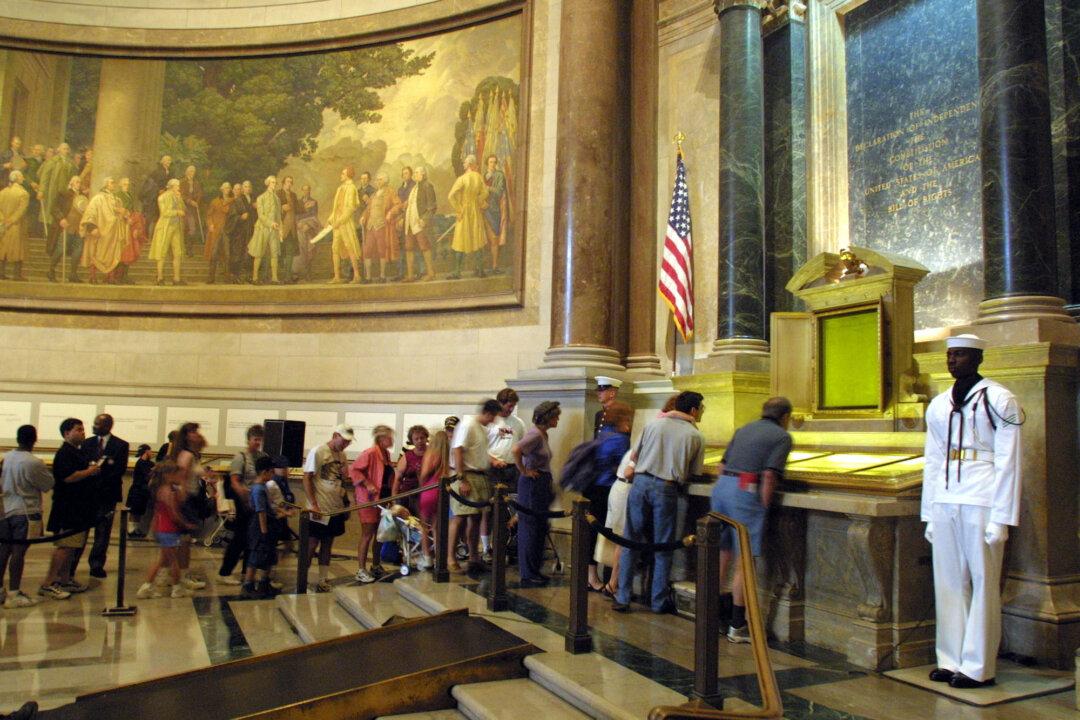The National Archives on Friday apologized for telling visitors that they must cover up or remove their pro-life attire while being in the chamber where the original copy of the Bill Of Rights is on display.
“As the home to the original Constitution and Bill of Rights, which enshrine the rights of free speech and religion, we sincerely apologize for this occurrence,” said the National Archives and Records Administration (NARA), which maintains the National Archives Museum in Washington.





